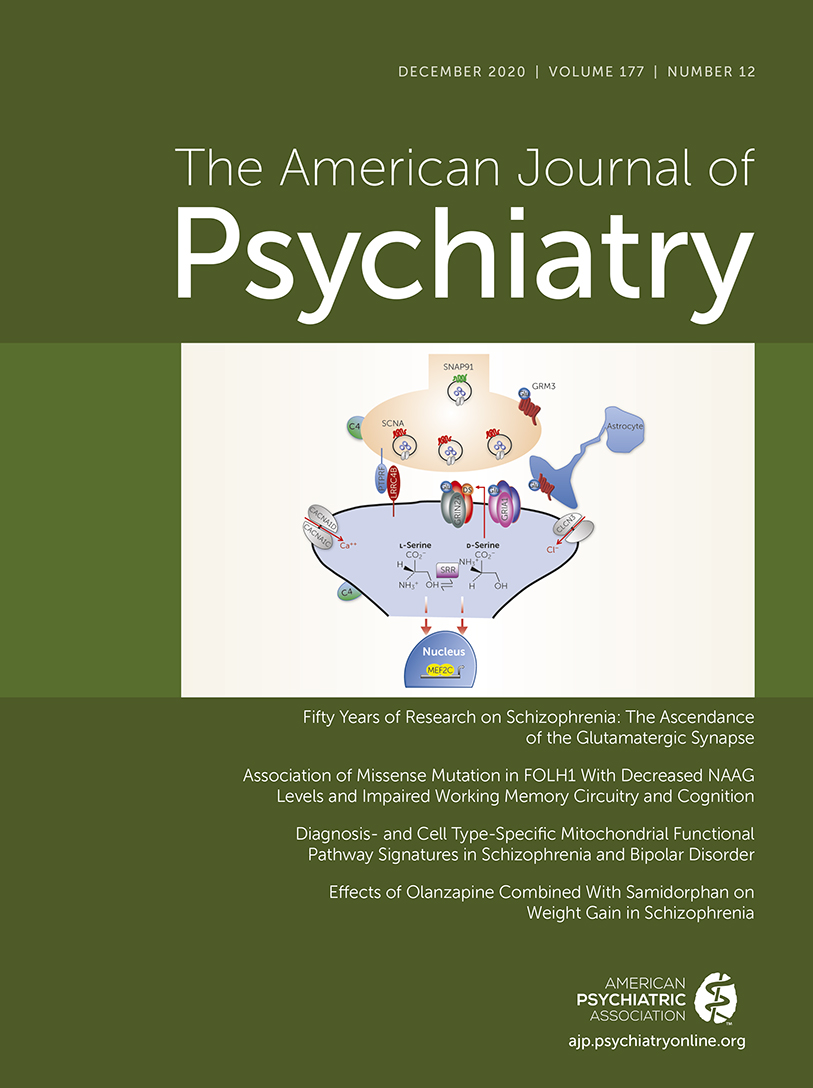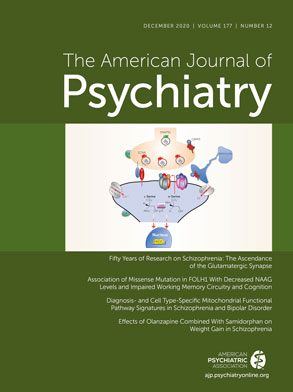Surprise medical billing, in which patients face unexpected out-of-pocket medical costs, has attracted widespread attention. As of March 2020, members of the U.S. House of Representatives and Senate were working on legislation to limit these billing practices. Surprise medical bills have various consequences for patients and families, including loss of income or savings, worsened credit scores, use of resources for legal counsel or litigation, and psychological stress. Patients can receive surprise medical bills for care they did not authorize, including treatment for loss of consciousness, cardiac arrest, traumatic injuries, and other emergencies where informed consent cannot be obtained before care. A related set of medical bills has not garnered much attention yet may rank among the most surprising for patients and families—bills for involuntary psychiatric care.
Billing patients for involuntary psychiatric care deserves more attention for several reasons. First, these patients may be held financially liable for care they did not authorize and even actively refused. Compared with most medical care, involuntary psychiatric care is different in that patients can be detained for evaluation and treatment against their expressed wishes. All U.S. states have statutes that authorize emergency and inpatient civil commitment, such as involuntary hospitalization on grounds of dangerousness to self or others due to a mental disorder, and a majority of states have provisions for outpatient civil commitment (
1). These statutes are based on principles that under specific circumstances, individual and/or public benefits of managing someone’s mental health needs supersede that person’s rights to refuse psychiatric care. However, forcing someone to assume financial liability for involuntary psychiatric care may infringe upon additional liberties, including individuals’ abilities to consent to contracts and to allocate money. By shifting the balance of autonomy, justice, beneficence, and nonmaleficence associated with involuntary psychiatric care, these billing practices raise ethical concerns.
Second, involuntary psychiatric care can incur substantial costs that may be passed on to patients. In 2016, an inpatient stay for a primary mental disorder or substance use disorder cost U.S. hospitals an average of $7,100 over 6.4 days (
2). Hospitals often charge payers considerably more than the costs of delivering care. A study of 2006 data estimated that community-based hospitals charged on average between $8,393 and $21,793 for inpatient psychiatric care and that these charges were approximately 2.5 times greater than the costs of delivering care (
3). Estimates from 2014 suggest that involuntary hospitalizations may represent as much as 54% of U.S. admissions to psychiatric inpatient settings (
4), but specific data are lacking about how frequently patients receive out-of-pocket bills for involuntary psychiatric care. Payments for involuntary care may come from various sources, including public programs, private insurance, charity programs, and out-of-pocket spending. Among 2 million inpatient stays for patients younger than age 65 with a primary diagnosis of a mental disorder or substance use disorder in 2016, public programs (e.g., Medicare, Medicaid) were the primary expected payers for approximately 60% of the stays, compared with private insurance in 27% of the stays and self-pay or no charge for 10% of the stays (
2). These data did not specify the proportions of care that were involuntary or that led to out-of-pocket expenses for patients. Yet even if patients are not the primary payers, they can become saddled with additional expenses, including deductibles, copayments, and coinsurance, related to involuntary psychiatric care.
Third, patients who receive involuntary psychiatric care are particularly vulnerable to harms from surprise medical bills. Some patients may lack the capacity for financial decision making because of psychiatric illness. Given the lack of transparency in billing for mental health services, patients may find it challenging to determine their financial responsibilities for care they refused. Because patients with severe mental disorders already are at increased risk of experiencing poverty, these bills may be especially burdensome for them to pay and can cause other long-term harms, such as discouraging patients from seeking care or worsening credit scores (
5,
6). Psychiatric patients’ vulnerability, combined with the coercive nature of involuntary care, could also foster outright exploitation (
7).
As long as legal frameworks authorize involuntary psychiatric care, someone will have to pay for these services. Determining who should bear these costs is difficult, and more research is needed to better understand the prevalence and the implications of these unexpected medical bills. Some might argue that patients should be financially responsible for these situations because they are receiving psychiatric care and its potential benefits. Others might argue that the general public should help cover these costs because governments enforce legal frameworks for involuntary psychiatric care and the public also may benefit from these services. Further complicating matters, certain aspects of care, such as presenting to an emergency department, might be voluntary, whereas other parts, such as emergency administration of medications or inpatient civil commitment, might be involuntary. Should patients pay all or some of these costs? To what degree should public programs, private insurance, or individual health care facilities cover these expenses?
Courts have grappled with these questions on occasion, and different cases have led to different outcomes for patients, as shown by two examples. In Iowa, a hospital pursued nearly $3,000 from a man after he was involuntarily hospitalized for allegedly threatening self-harm and purchasing a shotgun. The patient argued in court that he had signed a hospital release form acknowledging financial liability under duress, stating that a nurse had awakened him around 5:00 a.m. and told him that his personal belongings might not be returned without a signature. This case wound up in the Supreme Court of Iowa, which decided in 2000 that although the patient did not want treatment, the “hospitalization was indeed of medical benefit to him” and that a collections agency was entitled to recover payment under an implied contract in law (
8). In contrast, a man with schizophrenia and limited income was involuntarily hospitalized in New Jersey, incurring a bill of more than $65,000 that was reduced to approximately $6,700 because he lacked insurance. When the patient failed to complete charity care paperwork on time, the medical center filed suit for payment, and a trial court granted summary judgment to the medical center. An appeals court reversed this decision in 2018, concluding that the patient’s hospitalization via a psychiatric emergency screening service qualified as an emergency room admission and that the hospital had incorrectly followed charity care procedures for nonemergency—rather than emergency room—admissions (
9).
Policy makers and health care organizations should strive to protect patients from unexpected medical bills related to involuntary psychiatric care. Limiting patients’ out-of-pocket expenses, including deductibles, copayments, and coinsurance, under these circumstances might be one way to distribute costs. If involuntary care is required under state laws, asking states to pay uncovered costs for uninsured or underinsured patients seems reasonable; still, it is not clear if states would allocate funding for these expenses given competing priorities or whether private payers might then try to evade responsibilities for covering involuntary care. Restricting the degree to which hospitals can charge markups on the costs of delivering such care, such as benchmarking charges to Medicare reimbursements, may be another way to mitigate financial effects on patients; however, doing so could disincentivize health care facilities from offering psychiatric services. Introducing more oversight into billing and collections practices for involuntary care appears necessary. Providing patients with clear information about billing related to involuntary care and options for recourse seems prudent; unfortunately, the complexities of medical billing and patients’ difficulties understanding these bills could detract from the potential benefits of offering these resources. In some cases, patients may be able to negotiate with insurance providers or apply for charity care benefits to minimize out-of-pocket expenses. Resolution through litigation might be another approach, although litigation is often driven by creditors pursuing payment and, given its associated costs and stress, hardly seems therapeutic for patients.
In 1980, Congress passed the Mental Health Systems Act, which included a bill of rights for mental health patients under 42 U.S. Code § 9501. This list served as a model for states across the country and included rights to individualized treatment plans, freedom from restraint outside of emergencies, confidentiality of records, visitors, and telephone access, but it left out any mention of the financial implications of involuntary psychiatric care for patients.
As Congress considers steps to curb surprise medical bills, this omission warrants another look.

